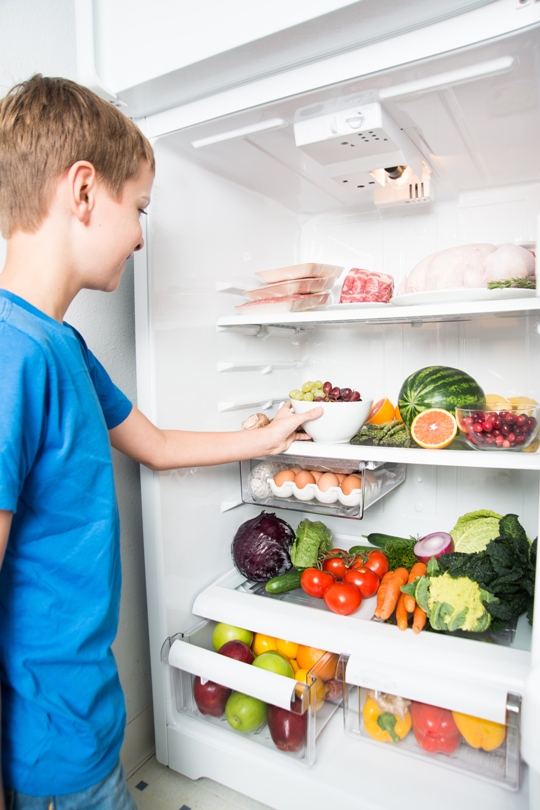 1. Calcium
1. Calcium- Helps to build strong bones and teeth
- Promotes healthy nerve and muscle function
- Helps blood to clot
- The best sources of calcium are: milk, yoghurt and cheese. However, calcium can also be found in other less expected places such as cooked spinach, fortified breakfast cereals, bread and tinned salmon and sardines
- Your five - eight year old child needs 800mg of calcium per day
2. Iron:
- Important for making haemoglobin, the oxygen-carrying red pigment in blood
- Important for making myoglobin, a pigment that stores oxygen in muscles
- A lack of iron can cause anaemia, which can result in fatigue, weakness and irritability
- Good sources of iron include: fortified breakfast cereals, spinach, red meat, tofu, soy beans and whole-wheat bread
- Your five - eight year old needs 8-10mg per day of iron
3. Magnesium:
- Keeps bones strong
- Supports the immune system
- Helps maintain muscle and nerve function
- Good sources of magnesium include: cashews, peanut butter, avocado, baked beans, banana and lentils
4. Potassium:
- Required for normal muscular and neurological function and the maintenance of a healthy blood pressure
- Good sources of potassium include: Spinach, almonds, banana, and tomato, orange
5. Vitamin A:
- Helps maintain vision and bone growth
- Promotes healthy hair and skin
- Good sources of vitamin A include: Carrot, mango, tinned and fresh peaches, broccoli, sweet potato and cheddar cheese
6. Vitamin C:
- Assists with healing
- Boosts the immune system and helps keep infections at bay
- Helps the body absorb iron from iron-rich foods
- Good sources of vitamin C include: Orange juice, tomatoes, red peppers, strawberries, mango, potato and pink grapefruit
- Your five - eight year old child needs 45 mg of vitamin C per day
7. Vitamin D:
- Assists the body in absorbing calcium
- Builds strong teeth and bones
- Is essential for reaching growth potential and peak bone mass
- Functions as a hormone with roles in immune system, insulin production and regulation of cell growth
- Good sources of vitamin D include: Salmon, egg yolk, cheese, canned tuna, cheese and fortified milk. Kellogg’s children’s breakfast cereals have added vitamin D
- Your five - eight year old needs 10 micrograms per day of vitamin D
8. Vitamin E:
- Limits the production of free radicals can damage cells
- Is important for immunity, DNA repair, and other metabolic processes
- Good sources of vitamin E include: Almonds, broccoli, peanuts, mango and sunflower seeds
- Your five - eight year old needs 7mg per day of vitamin E
9. Zinc:
- Maintenance of healthy skin
- Wound healing
- Good sources of zinc include: Beef, chicken, lentils, cheese and tofu, yoghurt
- Your five - eight year old needs 6-7mg of zinc per day
10. Essential fatty acids (EFAs):
- Helps build cells
- Needed for brain function
- Strengthens the cardiovascular system
- Builds immunity
- Helps the body absorb nutrients
- Good sources of Essential fatty acids include: walnuts, tofu, soy beans, omega 3 fortified eggs
- Your five-eight year old needs 10g per day of Omega 6 and 0.9g per day of Omega 3












